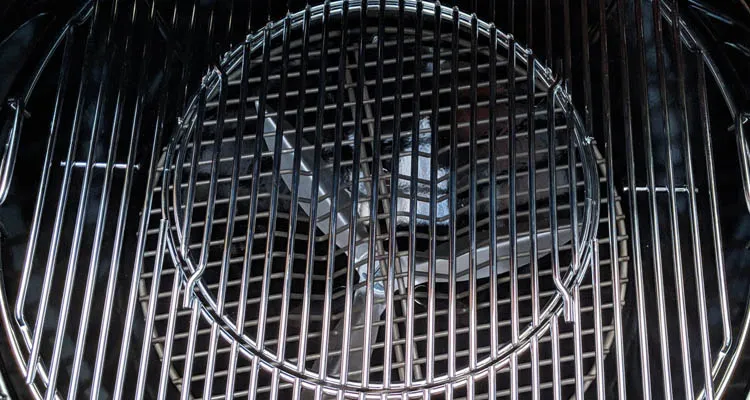The grill grate plays a crucial role in your cooker as it directly interacts with your food.
You desire a cooking surface that provides excellent heat transfer, prevents food from sticking, and is durable.
Selecting the appropriate grill grate is a significant decision, as it impacts the cooking process of your food. However, choosing can be challenging due to the abundance of marketing jargon used by grill manufacturers to describe their grates.
To simplify the process, we will outline the various types of grill grates and provide you with the necessary information to make an informed decision.

What Metal to Use for BBQ Grill?
Grill grates typically come in cast iron, stainless steel, or a base material coated with enamel.
There's ongoing debate regarding which grill grate material yields the best results. Therefore, we will delve into each material extensively, outlining their respective pros and cons.
Stainless steel grates are the most cost-effective choice, known for their lightweight construction, which facilitates easy maneuverability, especially when accessing the coals beneath.
Their low weight also results in quick heating. However, due to their thinner build, they lack heat retention capabilities.
While proper stainless steel exhibits high corrosion resistance, it's not entirely corrosion-proof. With time and exposure to heat from the coals, as well as regular cleaning, the surface of the grill grate may degrade. This degradation can lead to a rough texture prone to corrosion and food sticking.
Pros
- Light and easy to move around
- heat up quickly
- won’t rust or corrode
- Affordable
- are easier to clean than cast iron
- are long-lasting
- require very little maintenance
Cons
- Cooking surface degrades over time
- Wear and tear can cause food to stick
- Low heat retention
2.Cast iron grill grates
Cast iron grill grates are highly regarded for their exceptional heat retention and ability to maintain an even cooking temperature.
Due to their thickness, cast iron grates take slightly longer to heat up compared to stainless steel. However, once they reach cooking temperature, they offer outstanding heat transfer and produce bold sear marks.
One drawback of cast iron grills is their weight and maintenance requirements. The heaviness of the grate can make it challenging to access the coals and maneuver the grate during cleaning.
Additionally, the porous surface of cast iron grates is susceptible to rust and requires regular upkeep. Nonetheless, with proper maintenance and rust removal, cast iron grill plates are incredibly durable and are likely to outlast your cooker.
Pros
- hold a lot of heat
- Produces an even cooking temperature
- Very durable if properly maintained
- produce mouth-watering sear marks
Cons
- Heavy
- Prone to corrosion
- Requires constant maintenance
- Needs to be seasoned to become non-stick
Click here for more information

Comments